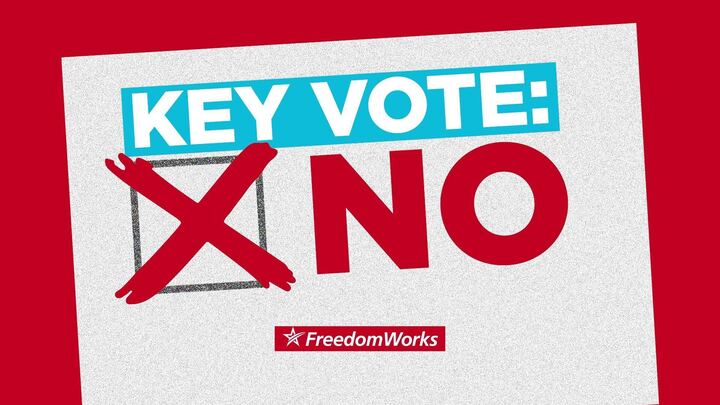Support the Regulations from the Executive in Need of Scrutiny (REINS) Act, H.R. 1776
Although the Trump administration made great progress in rolling back excessive regulations, the regulatory state has become an unconstitutional fourth branch of the federal government that began before and will extend beyond that administration. This trend of growth in bureaucracy has imposed a massive cost compliance burden on businesses and consumers, and the current Biden administration has already taken massive leaps toward reimposing many regulatory costs.
According to the Competitive Enterprise Institute, federal regulations cost nearly $1.9 trillion, or approximately $14,000 per family, annually. If the federal regulatory state alone were its own economy, it would be one of the largest economies in the world. As imposing as regulatory burdens already are, Americans are now facing a four-year period of the Biden administration in which the regulatory state will grow, potentially at a rate it never has before.
Under current law, Congress may disapprove of a rule issued by a regulatory agency under the Congressional Review Act of 1996. Spearheaded by Sens. Don Nickles (R-Okla.) and Harry Reid (D-Nevada), the Congressional Review Act (CRA) required both chambers of Congress to pass a joint resolution disapproving of a rule, which would subsequently have to be signed by the president to cancel the rule.
Prior to the 115th Congress, the Congressional Review Act was used successfully to cancel a rule only once, in March 2001, when Congress disapproved of the Occupational Safety and Health Administration (OSHA)’s ergonomics rule. President George W. Bush signed the joint resolution of disapproval into law. During the 115th Congress, the Congressional Review Act was successfully used by Congress to nullify 16 midnight rules published in the final days of the Obama administration, reducing billions of regulatory costs.
Although the Congressional Review Act proved to be a useful tool during the 115th Congress to roll back the regulatory state, it is in need of an upgrade, as political dynamics do not always allow for effective usage of the CRA. The REINS Act would amend the Congressional Review Act to require congressional approval of economically significant rules — those with an annual economic impact of $100 million or more — published by regulatory agencies.
Under the REINS Act, the House and Senate would have to pass a joint resolution to approve the rule within 70 legislative days, which would be presented to the president for enactment or veto. Should Congress not take action on a joint resolution of approval, the rule cannot take effect.
Although the regulatory environment substantially improved under the Trump administration, with few bad regulations that would hamper certain industries, the REINS Act would provide a crucial and long overdue check on current and future administrations that try to circumvent Congress through exercising the unilateral and largely unchecked power of the regulatory state.
Past may be prologue. An October 2016 report from the Congressional Research Service noted that the Obama administration published 570 economically significant rules between 2009 and 2015. The Obama administration eventually surpassed 600 economically significant rules, with a price tag of nearly $750 billion, according to American Action Forum. We are already witnessing a return to this under the Biden administration. The REINS Act is needed now more than ever.
The REINS Act reduces the influence of federal regulatory agencies and begins to reclaim Congress’ Article I authority as the sole law-making branch of the federal government under the Constitution. For these reasons, I urge you to contact your representative and ask him or her to cosponsor the Regulations from the Executive in Need of Scrutiny (REINS) Act, H.R. 1776.
Sincerely,
Adam Brandon,
President, FreedomWorks



